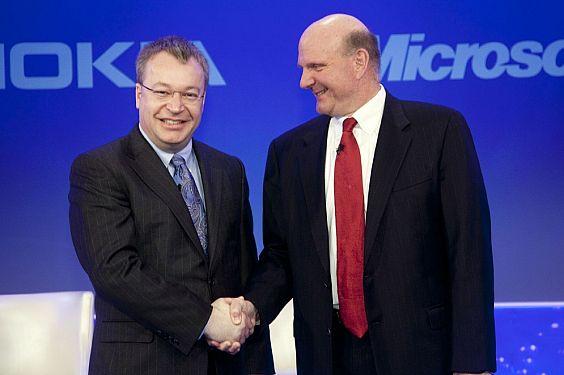
The question of "Do apps really matter?" when it comes to a smartphone ecosystem has been asked numerous times over the past few years, and although it's clear that apps do matter, it's still seems unclear exactly how apps matter - is it the quality of apps that matter, or the quantity? Would people be willing to switch by having enough alternatives, or do the apps need to be mainstream? In the eyes of the dominating manufacturer of Windows Phones, Nokia, it really comes down to producing mainstream applications to help draw in initial interest and sales.
According to an interview with International Business Times, Nokia vice president Byran Biniak is "positive about about the future of Windows Phone platform but believes Microsoft need to change its ways to make it a success." In other words, while Nokia is confident that it can keep making hardware that takes care of the needs within Windows Phone, Microsoft has to step it up when it comes to what Windows Phone has to offer. It takes two to tango, and Microsoft seems to be banking on Nokia's hardware success alone to stay afloat in the smartphone market. In Nokia's eyes, this just won't work.
Nokia isn't doing that badly for itself in regards to sales. In fact, the company recently announced that it sold 7.4 million Lumia units, which is a fairly big number by itelf but when you compare it to the 100 million units that Samsung and Apple were able to sell it doesn't seem to be doing that great either, especially considering Nokia's sales actually fell 24 percent in the second quarter, according to Businessweek.
Although Nokia smartphones are mostly well-known for producing top-of-the-line cameras in smartphones (especially with the recent announcement of the Lumia 1020 with all its 41-megapixel glory) a smartphone cannot depend on great cameras alone to produce sales. Phones like the the iPhone 5, which features an 8-megapixel camera, or the Samsung Galaxy S4, which features a 13-megapixel camera, also have fantastic application selections with both mainstream and third party applications to choose from. Customers don't have to choose between decent smartphone cameras or a good app ecosystem when it comes to iOS or Android. This in turn could be seen as getting more for your money when choosing which platform to choose from.
Biniak had a lot to say on the matter, with quotes like "People rely on applications for their day-to-day life and if you don't have something which I use in my day-to-day life I'm not going to switch [operating systems] because I don't want to compromise the way I live my life just to switch to a phone," and "It's not just about the hardware, it's about the tools that are on the hardware. You can't sell a phone without the apps, you just can't."
Quite frankly, I find it hard to argue with points like that coming from a business that's trying to make sales with the company it partnered with. Microsoft did a good job with the minimalist design on Windows Phone; it is truly a unique smartphone platform that can't follow the age-old argument of "They totally copied iOS/Android." But Microsoft is still missing that third important component when it comes to a truly successful smartphone, and that is, of course, the types of applications offered on the market. Although the Windows Phone app store isn't totally lacking in mainstream applications, there are still key applications missing that customers, and Nokia, think should be there.
As mentioned in the International Business Times article, it is important to consider that Microsoft is important in a lot of other industries besides just smartphones - computers, XBox, Office, etc. It seems that Microsoft isn't seeing the smartphone industry as one of their top revenue resources, but in my opinion, if there is ever a time to take the smartphone industry seriously, that time would be now. Other operating systems are starting to pop up and who knows how long it will be before these other operating systems can compete with Android or iOS? Windows Phone has an edge right now and they need to take advantage of it while they can.
I think it's important to have more than just two main competitors in the smartphone market, and I think that Windows Phone has a lot of potential. It's one of the most basic platforms that doesn't require a lot of heavy specs in order to operate smoothly. Microsoft has a good thing by being partners with Nokia for hardware, but Nokia needs Microsoft to start helping them out in order to succeed - something that even Nokia sees. Perhaps now that Nokia is being more vocal about the push, we can start seeing more effort from Microsoft to get the application support it needs in the market.
Readers, what are your thoughts? Are you happy with Windows Phone the way it is, or do you think it could benefit from more app support? For non-Windows Phone users, would you switch to Windows Phone in its current state? Let me know your thoughts in the comments below!
Images via ZDNet, Lumia News